Médias Justice
Site d'Observation des Médias et de la Justice
PROPRIETE CONDAMNEE avec Marie CHAUFOUR ACTRESS
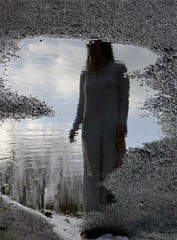
PROPRIETE CONDAMNEE de Tennessee Williams
Compagnie Act'O Théâtre
Interprète: Marie CHAUFOUR
Mise en scène : Agathe SCHUMACHER
Traduction de Jacques GUICHARNAUD
Création vidéo : Eduardo LAMORA, Agathe SCHUMACHER
Montage vidéo : Caroe FERRAND
Lumières : Angélique BOURCET
Musique : "La Berceuse" de Brahms interprétée par Pierre CHEPELOV
Régie : Angélique BOURCET
Willie, livrée à elle même, vit en cachette dans la "propriété condamnée". Elle s'amuse à jouer la funambule sur son rail de chemin de fer, une poupée à la main, le fil ténu de sa jeune vie, et dégringole de la voie ferrée en un flots de paroles, de secrets, de fantasmes… qu'elle livre à son jeune compagnon imaginaire Tom, son cerf-volant.
Spectacle parrainé par agnès b. et avec le soutien de la Rhumerie.
Presse :
Hors-Série de La Terrasse juillet 2008 : cliquez ici
Article du 20 juillet 2008, Revue-Spectacle : cliquez ici
« Moment de théâtre rare et magique. Il faut voir Marie Chaufour, jeune actrice, absolument habitée par son double fêlé(…)Peu ou pas de décors pour ce conte cruel(…)Mais quand la jolie petite cinglée s’échappe -"salut!"- on a envie de crier: "Non! Pas si vite, reste encore un peu!" Et ça, c’est très, très rare»
B.Legrand (scénariste SACD)
Françoise SEMTOB Co Author Médias Justice
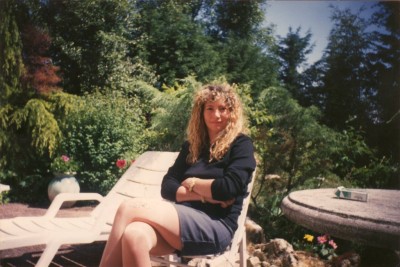
Commentaires
1. marsupifab le 03-02-2010 à 13:47:18 (site)
Bonjour, c'est une bien chrmante et jolie personne qui s'occupe de l'observation! Bonne journée
SEMTOB FRANCOISE & KARELL MEDIAS JUSTICE CO-AUTHORS

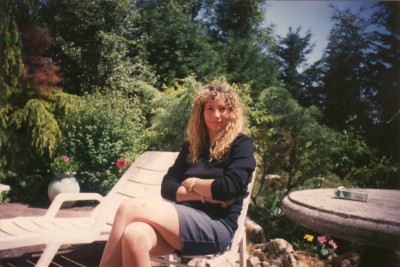
Commentaires
1. Cheap Coach Bags le 24-12-2010 à 02:08:14 (site)
Just as the first law of gain is desire, so the formula of success is BELIEF.
6. sofei le 20-09-2011 à 08:50:44
Sao Paulo, ciudad que aspira a ser sede de la ceremonia inaugural del Mundial y ��nica que no hab��a definido sus obras, inici�� este mes camiseta del bayern munich
la construcci��n del estadio que ofreci�� para el evento.En la misma ceremonia, el ministro de Deportes de Brasil, Orlando Silva, camiseta bayern munich
agradeci�� la confianza manifestada esta semana por los dirigentes de la Federaci��n Internacional de Asociaciones de F��tbol (camiseta bayern
FIFA) en que el pa��s conseguir�� concluir todas las obras a tiempo y realizar un Mundial ejemplar."Hemos realizado un gran empe?
8. ewqqe le 24-12-2011 à 07:53:31
que sostenía el club.
En la primera Premier League post venta del camiseta selección española club, el Chelsea terminó en la segunda camisetas españa colocación y llegó a los cuartos de final de la Champions League. De cara nueva camiseta españa a la siguiente temporada, despidió al DT italiano Claudio Ranieri y puntas de áreas o uno por dentro y otro por afuera”.En cuanto a la B Nacional, opinó Calderón que es un torneo muy competitivo. “Quizás ahora por la presencia de River Plate o Rosario Central puede ser que le dé mucha más importancia, pero siempre lo fue. No hay que
TO PREPARE FESTIVAL D'AVIGNON 2010 : KING RICHARD II
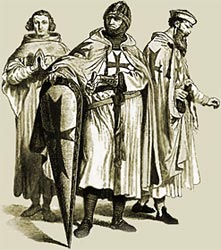
King Richard II
The story and biography of King Richard II which contains interesting information, facts & the history about the life of King Richard II
The story of King Richard II
Edward, the Black Prince, the eldest son of King Edward III of England and Philippa of Hainault never ruled as king, pre-deceasing his father by one year. The Black Prince was father to King Richard II of England who succeeded King Edward III at the age of just eleven years old. But he had four uncles - Lionel, Duke of Clarence, John, Duke of Lancaster ( John of Gaunt), Edmund, Duke of York and Thomas, Duke of Glouceste.
King Richard II, Wat Tyler and the Peasant's revolt 1381
It was a difficult time in England. The wars in France had dragged on and depleted the money available in England. Taxes fell more heavily on the poor than the rich. One tax, especially, called the poll tax, which was made when Richard was sixteen, vexed them greatly. Everyone above fifteen years old had to pay fourpence. A man named Wat Tyler, in Kent, was so angry with a rude collector as to strike him dead. All the villagers came together with sticks, scythes, and flails; and Wat Tyler told them they would go to London, and tell the king how his poor commons were treated. More people and more joined them on the way, and an immense multitude of wild looking men came pouring into London, where the Lord Mayor and Aldermen were taken by surprise, and could do nothing to stop them. They did not do much harm then; they lay on the grass all night round the Tower, and said they wanted to speak to the king. In the morning he came down to his barge, and meant to have spoken to them; but his people, seeing such a host of wild men, took fright, and carried him back again. He went out again the next day on horseback; but while he was speaking to some of them, the worst of them broke into the Tower, where they seized Archbishop Simon of Canterbury, and fancying he was one of the king's bad advisers, they cut off his head. Richard had to sleep in the house called the Royal Wardrobe that night, but he went out again on horseback among the mob, and began trying to understand what they wanted. Wat Tyler, while talking, grew violent, forgot to whom he was speaking, and laid his hand on the king's bridle, as if to threaten or take him prisoner. Upon this, the Lord Mayor, with his mace--the large crowned staff that is carried before him--dealt the man such a blow that fell from his horse, and an attendant thrust him through with a sword. The people wavered, and seemed not to know what to do: and the young king, with great readiness, rode forward and said
"Good fellows, have you lost your leader? This fellow was but a traitor, I am your king, and will be your captain and guide."
Then he rode at their head out into the fields, and the gentlemen, who had mustered their men by this time, were able to get between them and the city. The people of each county were desired to state their grievances; and they went home.
King Richard II was very handsome, and he cared more for fine clothes and amusements than for business; and his youngest uncle, the Duke of Gloucester, did all he could to keep him back, and hinder him from taking his affairs into his own hands. Not till he was twenty-four did Richard begin to govern for himself; and then the Duke of Gloucester was always grumbling and setting the people to grumble, because the king chose to have peace with France. Duke Thomas used to lament over the glories of the battles of Edward III., and tell the people they had taxes to pay to keep the king in ermine robes, and rings, and jewels, and to let him give feasts and tilting matches, when the knights, in beautiful, gorgeous armor, rode against one another in sham fight, and the king and ladies looked on and gave the prize.
Richard knew very well that all this did not cost half so much as his grandfather's wars, and he said it did not signify to the people what he wore, or how he amused himself, as long as he did not tax them to pay for it. But the people would not believe him, and Gloucester was always stirring them up against him, and interfering with him in council. At last, Richard went as if on a visit to his uncle at Pleshy Castle; and there, in his own presence, caused him to be seized and sent off to Calais. In a few days' time Thomas, Duke of Gloucester, was dead; and to this day nobody knows whether his grief and rage brought on a fit, or if he was put to death. It is certain, at least, that Richard's other two uncles do not seem to have treated the king as if he had been to blame. The elder of these uncles, the Duke of Lancaster, was called John of Gaunt, because he had been born a Ghent, a town in Flanders. He was becoming an old man, and only tried to help the king and keep things quiet; but Henry, his eldest son, was a fine high-spirited young man--a favorite with everybody, and was always putting himself forward--and the king was very much afraid of him. One day, when Parliament met, the king stood up, and commanded Henry of Lancaster to tell all those present what the Duke of Norfolk had said when they were riding together. Henry gave in a written paper, saying that the duke had told him that they should all be ruined, like the Duke of Gloucester, and that the king would find some way to destroy them. Norfolk angrily sprang up, and declared he had said no such thing. In those days, when no one could tell which spoke the truth, the two parties often would offer to fight, and it was believed that God would show the right, by giving the victory to the sincere one. So Henry and Norfolk were to fight; but just as they were mounted on their horses, with their lances in their hands, the king threw down his staff before them, stopped the combat, and sentenced Norfolk to be banished from England for life, and Henry for ten years.
Not long after Henry had gone, his father, John of Gaunt, died, and the king kept all his great dukedom of Lancaster. Henry would not bear this, and knew that many people at home thought it very unfair; so he came to England, and as soon as he landed at Ravenspur in Yorkshire, people flocked to him so eagerly, that he began to think he could do more than make himself duke of Lancaster. King Richard was in Ireland, where his cousin, the governor, Roger Mortimer, had been killed by the Irish. He came home in haste on hearing of Henry's arrival, but everybody turned against him: and the Earl of Northumberland, whom he had chiefly trusted, made him prisoner and carried him to Henry. He was taken to London, and there set before Parliament, to confess that he had ruled so ill that he was unworthy to reign, and gave up the crown to his cousin Henry of Lancaster, in the year 1399. Then he was sent away to Pontefract Castle, and what happened to him there nobody knows, but he never came out of it alive.
Commentaires
1. Air Jordans le 22-12-2010 à 05:57:39 (site)
Richard was sixteen, vexed them greatly. Everyone above fifteen years old had to pay fourpence. A man named Wat Tyler, in Kent, was so angry with a rude collector as to strike him dead. All the villagers came together with sticks, scythes, and flails; and Wat Tyler told them they would go to London, and
2. TR Brand Jeans le 22-12-2010 à 08:51:04 (site)
True Religion Brand Jeans Richard was sixteen, vexed them greatly. Everyone above fifteen years old had to pay fourpence. A man named Wat Tyler, in Kent, was so angry with a rude collector as to strike him dead. All the villagers came together with
3. factory coach outlet le 18-03-2011 à 03:00:56 (site)
i've just discovered your blog. i love you! will be reading more...
Le crime contre l'humanité. Mireille DELMAS-MARTY
Le crime contre l'humanité
Les Presses universitaires de France viennent de sortir dans la collection Que sais-je? : Le crime contre l'humanité de Mireille Delmas-Marty professeur au Collège de France & Isabelle Fouchard, Emanuela Fronza, Laurent Neyret
« Les crimes contre l’humanité trans-cendent l’individu puisqu’en attaquant l’homme, est visée, est niée, l’Humanité. C’est l’identité de la victime, l’Humanité, qui marque la spécificité du crime contre l’humanité », affirmaient en 1997 les juges du Tribunal international pour l’ex-Yougoslavie à l’appui de leur premier jugement. L’expression même de crime contre « l’humanité » distingue ce crime de tous les autres et souligne son extrême gravité. Mais, si grave soit-il, un crime ne constitue un crime contre l’humanité qu’à condition de comporter des éléments constitutifs précis et de s’inscrire dans une attaque généralisée ou systématique. Cet ouvrage propose d’éclairer cette dénomination pénale née à Nuremberg en analysant sa formation en droit international, puis les variations de sa réception au niveau national. Il en explore ainsi la richesse mais pointe aussi ses ambiguïtés au travers des applications passées et présentes, esquissant déjà les transformations à venir.
En vente sur www.lgdj.fr
à la librairie LGDJ 20 rue Soufflot Paris 5ème. Tarif : 8,55 euros.
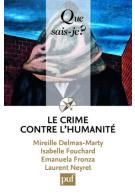
Brief presentation
Mireille Delmas-Marty is a professor at the Collège de France.
Isabelle Fouchard is an associate researcher working with the Chair of Comparative Legal Studies and Internationalization of Law, Collège de France.
Emanuela Fronza is an assistant professor at the University of Trento.
Laurent Neyret is a senior lecturer at the University of Versailles-Saint-Quentin.
Crime Against Humanity
In 1997, the judges of the ICTY, in support of their first sentencing judgement (Erdemovic, 1996), stated: ‘Crimes against humanity also transcend the individual because when the individual is assaulted, humanity comes under attack and is negated. It is therefore the concept of humanity as victim which essentially characterises crimes against humanity’.
In this statement, which is both legal (‘crime’, ‘victim’) and philosophical (‘when the individual is assaulted, humanity comes under attack and is negated’), the judges’ intention was to point out with force the specificity of the crime against humanity, a notion that had already been inscribed in the statute of the Nuremberg Trials, but not legally exploited.
The very expression ‘crime against humanity’ distinguishes this crime from all others. It seems obvious that its first specificity ensues from its extreme gravity, making it, whatever the circumstances, a particularly inhuman crime. But all crimes, however inhuman they may be, are not crimes against humanity they must also be massive in scale.
In this book, the authors take stock of this penal qualification today. They explore its rich scope, but also point out its ambiguities and probable developments in years to come.
Commentaires
2. Coach Ergo Bags le 20-04-2011 à 03:41:37 (site)
Thanks for taking this opportunity to discuss this, I feel fervently about this and I like learning about this subject.

Commentaires
1. website design company le 30-09-2013 à 06:24:09 (site)
Great article. I wish I could write so well.